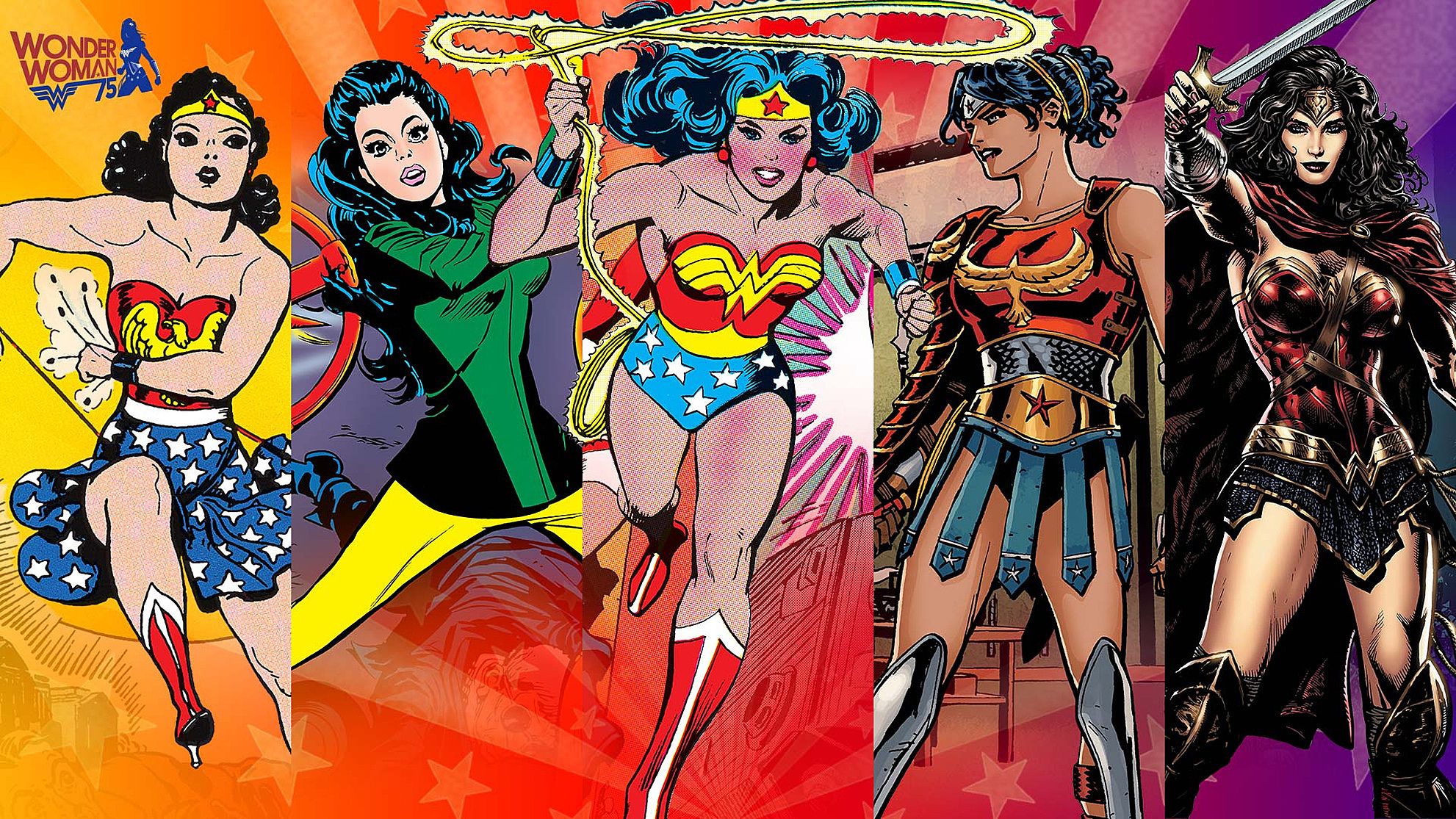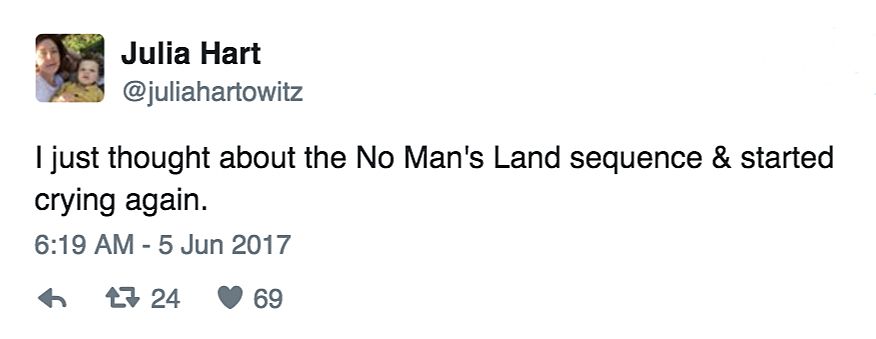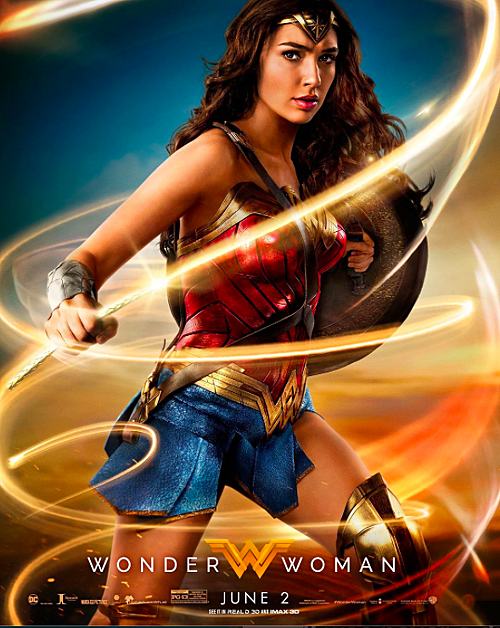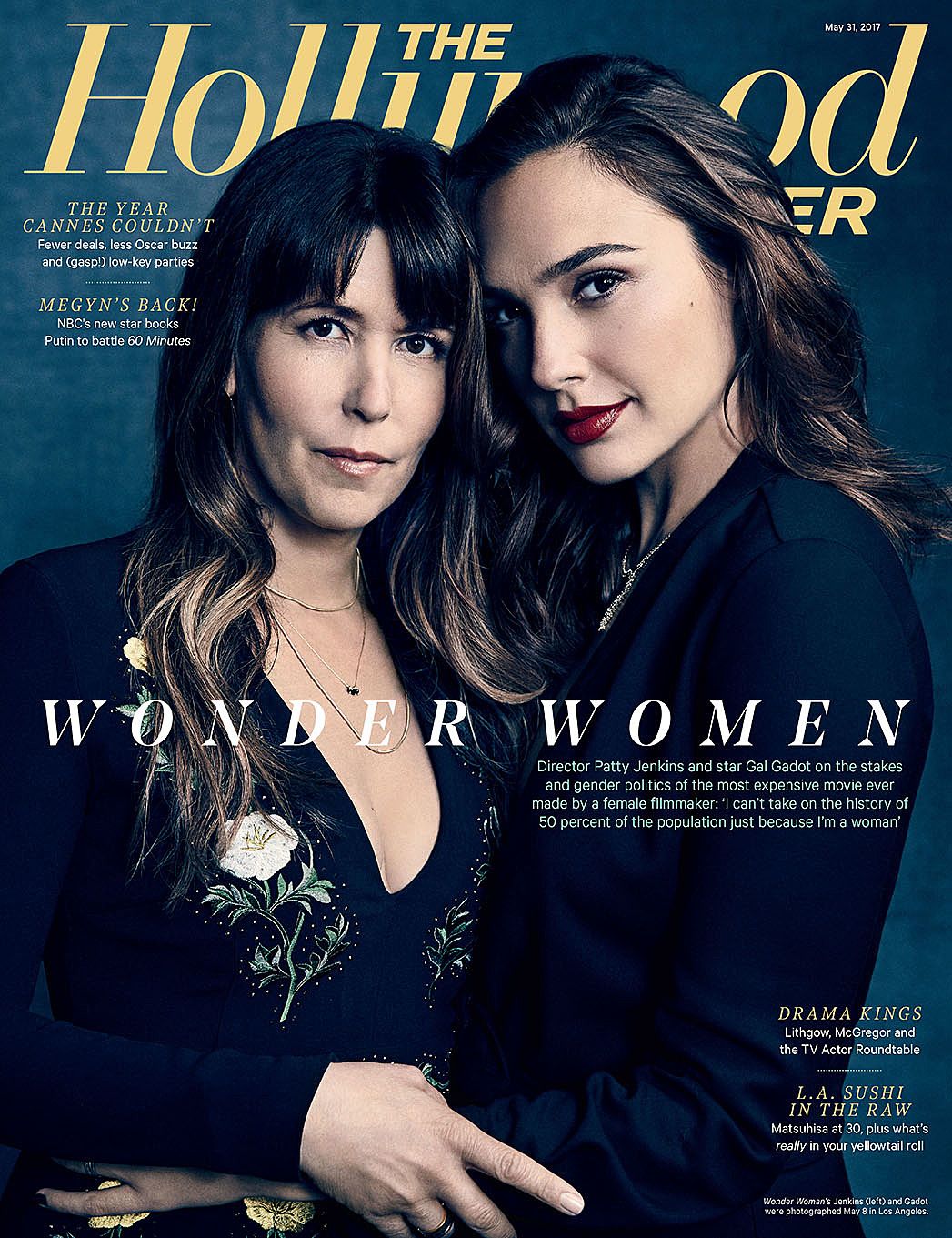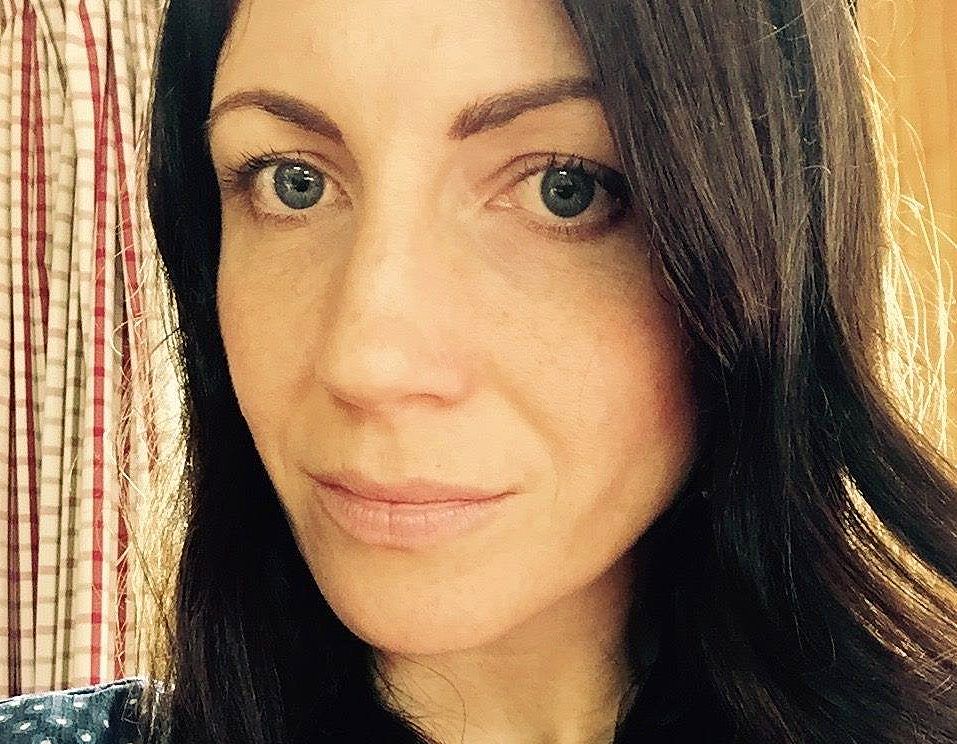Why We Cried During Wonder Woman
Two superhero nerds talk about why they, and everyone else, are crying during Wonder Woman.
My friend Sarah and I went to see Wonder Woman a few days ago. We’re both superhero nerds and try to go to these movies together. This one was particularly important because the movie starred a female superhero.
Neither of us were prepared for our response: at the end we were so tearful that we hugged and sat in our seats until we were composed enough to leave the cinema. What we also didn’t expect was that our reaction – especially to the fight scenes – would be a common experience. The next morning we chatted on Facebook, shared news articles, and then I suggested we write about the movie. So here we are.
Sarah Jane Barnett: So we went to see Wonder Woman last night and I expected it to be fun, but I didn't expect to cry during every fight scene, and to feel tearful this morning.
You had a similar reaction, and from trawling the internet, it seems a lot of other women did too. One commentator said, 'I felt like I was discovering something I didn’t even know I had always wanted.' I've been waiting my whole life to see a female superhero who acts from a place of integrity and goodness; to see her be the story; to see female strength and bravery. I'm going to cry again!
Sarah Hendrica Bickerton: I will admit, I had a mixture of high hopes & being terrified it wouldn’t live up my expectations. While my experiences with Man of Steel, and especially Batman vs Superman, made me attempt to steel myself for disappointment, by the time of the first reviews coming back that were positive (that I read gingerly to avoid spoilers!), I had honestly let myself fall into wanting it to be good.
And I was not remotely disappointed. I burst into tears almost immediately as I watched the Amazon women training in the first scenes. Here were women, strong, muscled, scarred, old, young, capable, competent, assertive, confident in their ability, of a whole range of ethnicities. It hit me so strongly that here was something I had not ever seen before. Never. I had papered over that void so many times, but suddenly it was there. These were WOMEN. I actually gasped for air.
SJB: Robin Wright as General Antiope was especially majestic in those fight sequences. The scene that really moved me was, after being told 'no' a dozen times, Wonder Woman climbs out of a military trench and strides into No Man’s Land. I've read articles today about that scene, and apparently it’s one that director Patty Jenkins had to fight to keep during filming (because it wasn't obvious who Diana was fighting as the camera stays on her for most of the scene).
My take is that the real battle is happening within Wonder Woman - she wants to prove that she can change the way the world works. In that moment, I identified with her. Remind me of what you said this morning about the cathartic nature of that scene?
SHB: What struck me about that scene is that in every scene prior since leaving the Amazons, Diana had been told ‘no’ by men. From Diana waking up and Steve having taken control of the boat, to walking her through London, to dressing her, to how she was treated by the British politicians and generals, to being told ‘No, we can’t save everyone’ in the trenches. At that moment she drew her line, and said ‘I am doing this.’ She shed the clothes she had been put in and revealed herself, her true self, and stood resolute, to finally do what was important to her.
To stand up and say ‘No, I am not going to do what I am told to’ will be a catharsis for so many women, to take power over oneself as a person.
I feel this resonates with so many women, how much we are told ‘no’ by society because of who we are, as women, we are held back so much. Diana’s frustration and the control men had over her, to the point of screaming, was something we all feel. And to stand up and say ‘No, I am not going to do what I am told to’ will be a catharsis for so many women, to take power over oneself as a person. It took a woman director to realise that, to know that, to push for the importance of that. I don’t think that can be overstated. That made me cry even before I really knew what I was crying over. And I suspect many women would have been similar.
SJB: That is exactly how I felt. I was reading about Jenkins today and she's said: ‘I didn’t realize that I needed to let this out, that’s what I was tasked with. But it opened a door to all the expressions of this superhero, all the dimensions of a woman that maybe we haven’t seen or felt.’ Apparently she's only the second woman to solo-direct any Hollywood live-action movie with a budget over $100 million, and the first to direct a superhero movie.
I was listening to a film review show and a man emailed in to say he’d taken his two daughters to Wonder Woman. He started crying during the movie because he realised his daughters would grow up with a strong female character who believed in love, sincerity, and that we can be better.
Thinking back, none of the female superheroes we grew up with had these qualities. Uma Thurman as Poison Ivy and Halle Berry as Cat Woman were shallow and overly sexualised characters. More recently we’ve had Scarlett Johansson as Black Widow and Jennifer Lawrence as Mystique, but both characters get their drive from emotional damage. I think the closest we’ve come to a character that embodies love and integrity is Famke Janssen as Jean Grey/Phoenix. Something to note is that all of the recent female characters are part of an ensemble cast: they are never the story.
SHB: I have read feminist critiques of the film based around the fact that Wonder Woman isn’t a feminist film because of the fact that she reinforces stereotypes and constructs of womanhood, in her appearance, in her role as a hero being cast as effectively ‘mothering’ humankind, and that they had to balance her non-feminine physicality with overt expressions of more conventional femininity (such as her gushing over a baby, and Steve Trevor taking a more dominant role when they sexually interact). Let alone the bondage narratives. And there is a validity in those critiques, for they are accurate.
However, I would also say they’re superficial critiques. As a feminist, my take is that we operate within a cultural context, as much as I would have adored for Robin Wright to have been Wonder Woman, she simply couldn’t have been in our current society (to our detriment). Gender resistances are played out as negotiations, as a dance if you will, with the dominant hegemonies and narratives of our culture. We are constantly carving out spaces for resistance within the bounds of power in our society (in fact, you could say that it is the imposition of power that in part creates spaces for resistance), along the lines of our intersections of oppression & privilege. Wonder Woman operates as such.
The evidence of how this film succeeds where others have failed is in how women are reacting to it.
And as that dance, as that negotiation, I think the movie succeeds, and succeeds marvellously. So many of the previous women superheroes, and women super anti-heroes, failed in this, for the exact reasons you give. Hell, even if you look back at the 1970s Wonder Woman series starring Linda Carter, no matter how terrific a show, nonetheless erred on the side of not disturbing conventional norms of womanhood. The evidence of how this film succeeds where others have failed is in how women are reacting to it. It speaks to women like very few films have, and particularly to women geeks and nerds. Is it perfect? Of course not.
But there’s that line Diana utters, 'It’s not about what you deserve, it’s what you believe. And I believe in them,' which speaks so strongly, because much of our lives as women is bound up in what we feel we deserve, or do not deserve. That’s part of what we have been conditioned to accept as women. That we need to behave appropriately, to act a certain way, to downplay our selves, and to look after others and not ourselves. We do this, and we should not. For Diana replies, when Steve Trevor says 'I can’t let you do this, with 'What I do is not up to you.' We as women are not allowed to say what we want for ourselves, we are sanctioned for it, and yet she does, emphatically. I think that resonates with so many women, even if they don’t consciously know it.
I'd also like to finish that while I adored so much of this film as a woman, as a queer woman I also have to say… Robin Wright! I’ll take women in leather armour, muscles, power, and downright hawtness any day of the week and twice on Sundays. So, I need to own up to my prurient interest in this film as much as I will my enjoyment of it’s advance of women!
SJB: I love you, woman. Here's to a continuing that dance.
Sarah Bickerton is a PhD candidate at Victoria University of Wellington, researching online political participation. Her background is as a sociologist, with particular foci on gender and online interaction, studying both at the University of Illinois at Chicago and the University of Canterbury. She’s a complete geek (her first ‘doll’ being an 80s R2D2 figure), an urbanist, a feminist, a lesbian, and a politics-nerd. You can find her on Twitter.
Sarah Jane Barnett is the Books Editor at The Pantograph Punch.
Wonder Woman first appeared in 1941 in DC Comics and has had various incarnations over the years. Her official title is Diana, Princess of Themyscria, Daughter of Hippolyta. She grew up on the magical island of Themyscria with the immortal Amazons from Greek mythology. She’s a demigoddess, a muscular and nimble fighter, and a believer in peace and love. The 2017 movie directed by Patty Jenkins has smashed domestic records in North America, and has topped the box office internationally. Feature Image sourced from DC Comics.
